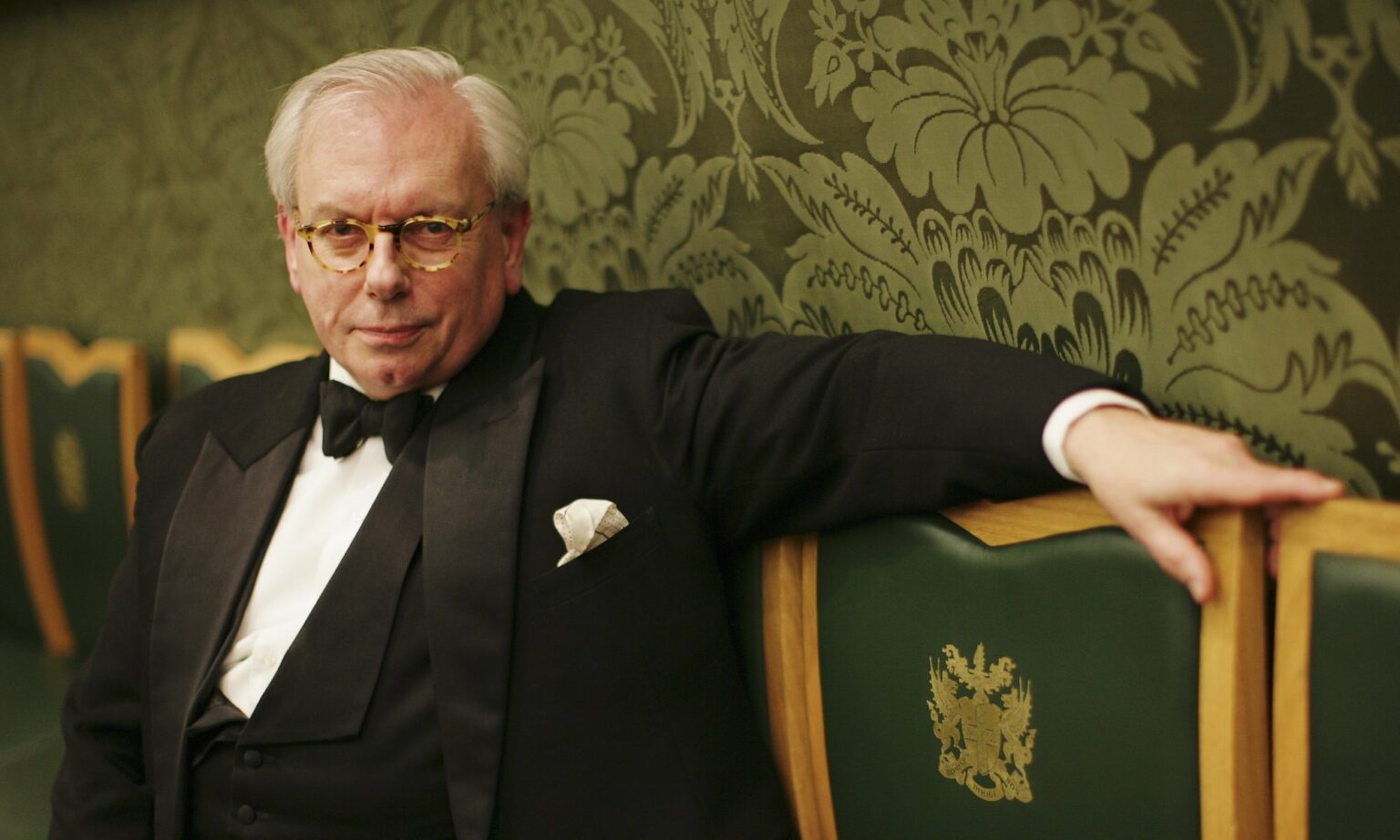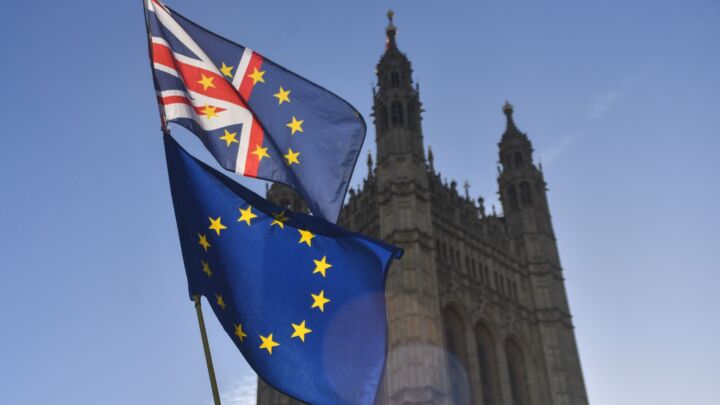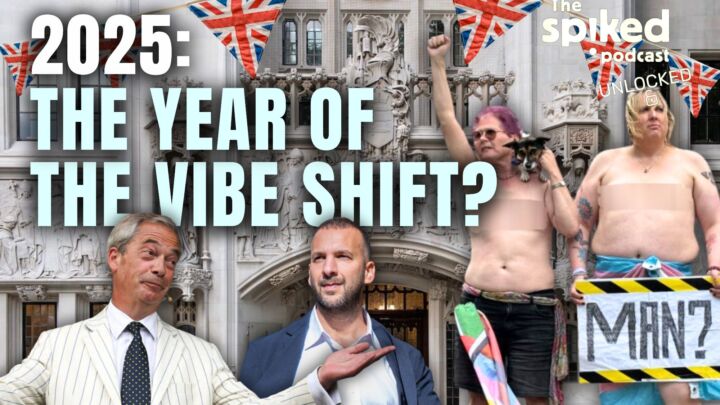
The great nudge
Government, Big Tech and the media are all trying to nudge us into adopting the ‘right’ behaviour.
Want unlimited, ad-free access? Become a spiked supporter.
When we think of oppressive regimes, we immediately think of the Stalinist model portrayed in Orwell’s Nineteen Eighty-Four, the heavy-handed thought control associated with Hitler’s Reich or Mao’s China. But where the old propaganda was loud, crude and often lethal, the contemporary style of thought control takes the form of a gentle nudging towards orthodoxy – a gentle push that gradually closes off one’s critical faculties and leads one to comply with gently given directives. Governments around the world, including in the UK, notes the Guardian, have been embracing this approach with growing enthusiasm.
Nudging grew out of research into behavioural economics, and was popularised in Cass Sunstein and Richard Thaler’s 2008 book, Nudge. It now has widespread public support and has influenced everything from health warnings for cigarettes to calorie counts for fast food. Yet nudging also has an authoritarian edge, employing techniques and technologies that the Gestapo or NKVD could only dream about to promote the ‘right behaviour’.
Tech firms, both in the US and China, already use messaging nudges to ‘control behaviours’. They use their power to purge their platforms of the wrong messages, as both Facebook and Twitter did when they censored the New York Post’s pre-election story about President Biden’s dissolute son, Hunter. Meanwhile, these same firms blocked the account of Donald Trump, Biden’s admittedly awful predecessor, on the grounds that he was fostering ‘violence’ – and they did so while tolerating open calls for mayhem and killing from leftists and foreign governments.
Free speech is clearly not a high priority in Silicon Valley. ‘Our role is not to be bound by the First Amendment’, Twitter’s new head Parag Agrawal said in a November 2020 interview. ‘Our moves are reflective of things that we believe lead to a healthier public conversation. The kinds of things that we do about this is, focus less on thinking about free speech, but thinking about how the times have changed.’
Sadly, the ability of Agrawal and other oligarchs to shape opinion may only be in its infancy. Nearly half of US adults now get their news through Facebook or Google and for young people social media are even more important. Millennials in both the United States and the UK are almost three times as likely to get their information from these platforms as they are from print, television or radio.
This situation is made worse because the people running our most powerful institutions, from the media to the government, increasingly share the same opinions and often have little tolerance for outliers. Their views on dissent and freedom of speech do not stem from Jefferson or Madison. If the Biden administration tried to impose ‘a Ministry for Truth’ to enforce ideological unanimity, as one writer suggests, the tech firms, the media and most large cultural institutions would likely ask, ‘Where do we sign?’
The nudgers focus on three areas: identity (ie, race / gender), the pandemic, and, most critically, climate. In terms of race issues, they rule out scepticism towards Black Lives Matter, including criticism of last year’s ‘mostly peaceful’ BLM demonstrations, which featured looting, arson and general mayhem. Many media outlets will also characterise anyone who does not embrace the new ‘anti-racist’ orthodoxy as a ‘white nationalist’. To avoid undue confusion, racial violence carried out by non-whites, say, on Jews or Asians, is generally downplayed. The media also increasingly avoid reporting crime committed by ‘people of colour’, such as the recent Wisconsin mass killing, allegedly committed by an violent African-American career criminal, who embraced both black nationalism and anti-Semitism. They can’t do it, since it interferes with the preferred narrative.
On the gender front, things may be even worse. To be sceptical about assaults on traditional definitions of male and female is to find oneself excluded from publishers, book stores and Amazon. Even suggesting that female sports will soon be dominated by ‘trans males’ – something brought up by liberal feminists like JK Rowling – leads to cancellation and excommunication from the progressive tribe.
The pandemic has rained manna for nudgers. Across the high-income world, we now see a form of hygiene authoritarianism, promoted and enforced by nudgers in government and media. This goes beyond debunking clearly unhinged and unsupported claims. It also includes purging anyone opposed to particular government Covid policies, including recognised professionals. The most egregious example was the cancelling and marginalisation of the authors of the Great Barrington Declaration, written by leading epidemiologists from Harvard, Oxford and Stanford – all for the ‘thoughtcrime’ of opposing lockdowns.
Much the same can be said about the discussion of the pandemic’s origins, notes Jonathan Chait, a left-of-centre writer for New York magazine. For months anyone mentioning the possibility that Covid escaped from a Chinese lab was denounced as racist and sent to the digital gulag. Only recently, as the case for it became credible, has the lab-leak theory been deemed acceptable.
But reversing positions does not bother the nudgers, who, like apparatchiks under Stalin or bishops of the medieval church, follow each shift of policy assiduously. This has led to a dizzying confusion as health officials switch official positions on the duration and severity of the disease, and on the usefulness of masks, while their projections on infections, deaths and hospitalisations have often been too high. Anyone who dares to dissent, for example, from the views of US chief medical adviser Dr Anthony Fauci is cast as an antediluvian ignoramus. ‘They’re really criticising science because I represent science’, Fauci said recently of those questioning him. ‘That’s dangerous.’
What really is ‘dangerous’ is Fauci’s insistence that he speaks for science. This mindset dominates discussion about climate. Historically, environmentalists struggled for causes the public supported, like clean air and water, or saving the oceans and preserving wildlife. But the current climate agenda is a tougher sell as it means lower living standards across the world.
In order to get people to sign up to this agenda, the nudgers need to suggest that only draconian steps can prevent the end of the planet. The fact that predictions have been frequently off and exaggerated does not matter. As long-time climate activist and former US senator Tim Wirth put it: ‘Even if the theory of global warming is wrong, we will be doing the right thing in terms of economic policy and environmental policy.’
Today, if you challenge climate policy, you are likely to join the digital gulag, an intellectual imprisonment encouraged by journalists who see themselves as active partisan shapers, as opposed to reporters, of events. Such treatment has been meted out to economist Bjorn Lomborg, environmental activist Michael Shellenberger and physicist and former Obama adviser Steven E Koonin. These are not ‘deniers’, but serious researchers who feel many environmental claims are vastly exaggerated, and see current climate policies as ineffective and socially destructive.
Some environmentalists even see national lockdowns as a ‘test run’ for the kind of highly managed, centrally controlled society they consider necessary to tackle climate change. ‘Democracy is the planet’s biggest enemy’, asserted an article in Foreign Policy in 2019.
No wonder so many nudgers see China as an ideal, a place without a nasty First Amendment that protects dissenters. Oligarchs, such as Bill Gates, also apparently endorse China’s authoritarian approach to Covid and other issues. The Chinese government’s efforts to monitor thoughts and regulate opinion, sometimes assisted by US tech firms, could prove a harbinger of things to come in Europe, Australia and North America.
In one sense the nudgers are right – unless sufficiently terrified, most people will never agree to their own immiseration, reject the idea of two main sexes, or embrace an ‘anti-racism’ that suggests all whites are intrinsically oppressors. These can only be imposed by undemocratic means forced on the public by those people occupying ‘the commanding heights’ in government, business and media.
Sadly, the notion of media cooperating with government to nudge the public – for example Sky’s collaboration with the Behavioural Insight Team, a one-time UK government body – has been gaining ground. Rather than something to avoid, some, particularly in our academic establishment, would rather the media convey orthodoxy on issues of race, Covid or climate than enjoy traditional Western press freedoms. Writing in the Atlantic, two law professors even suggested that in the ‘debate over freedom or control’, China ‘was largely correct and the US was wrong’.
This same censorious spirit is already being embraced by some of the internet’s moguls – Twitter, Facebook, Google and YouTube. All monitor and censor comments on climate, race, gender or the pandemic that do not fit their worldview. Companies like Meta, the Facebook offspring, embrace a regulatory vision that could make it difficult for competitors, and will help to secure their dominance of the nudging universe.
Nudging, notes one Singapore-based publication, looks to make ‘a happy citizen’, but that also comes with the proviso that happiness results from following the right digital signals. There’s something very Brave New World about this rule by ‘a scientific caste system’, as Aldous Huxley put it (1). The problem, as Huxley observed, ‘is that scientists and other experts do not own a monopoly on either virtue or political wisdom’ (2).
But the nudgers may not have the last word. There are clearly signs of a pushback, as people’s faith in the media continues to wane, particularly in the United States, and trust in tech companies crumbles. People who are fine with warning labels on cigarettes or calorie counts at McDonald’s may not be quite so keen on threats to their core values.
In the end, our best weapons against the nudgers lie away from the screen. By drawing on our personal experiences, families, communities, religious institutions, union halls and social clubs, we can resist the authoritarian values that many people, liberal and conservative, find bizarre and often objectionable. The nudgers are not as crude as Orwell’s Big Brother, but their goading may prove similarly oppressive.
Joel Kotkin is a spiked columnist, the presidential fellow in urban futures at Chapman University and executive director of the Urban Reform Institute. His latest book, The Coming of Neo-Feudalism, is out now. Follow him on Twitter: @joelkotkin
(1) Brave New World and Brave New World Revisited, by Aldous Huxley, Harper Classics, 2004, p237
(2) Brave New World and Brave New World Revisited, by Aldous Huxley, Harper Classics, 2004, p260

David Starkey and Brendan O’Neill – live and in conversation
Tuesday 14 December – 7pm to 8pm
Tickets are £5, but spiked supporters get in for free.
Pictures by: Getty.
You’ve read 3 free articles this month.
Support spiked and get unlimited access.
Help us hit our 1% target
spiked is funded by readers like you. It’s your generosity that keeps us fearless and independent.
Only 0.1% of our regular readers currently support spiked. If just 1% gave, we could grow our team – and step up the fight for free speech and democracy right when it matters most.
Join today from £5/month (£50/year) and get unlimited, ad-free access, bonus content, exclusive events and more – all while helping to keep spiked saying the unsayable.
Monthly support makes the biggest difference. Thank you.










Comments
Want to join the conversation?
Only spiked supporters and patrons, who donate regularly to us, can comment on our articles.